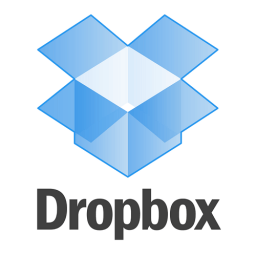
Warning: please consider this post only if you have advanced skills in WP backups. Else, data loss may occur. Do not implement this, if you don't have a monthly full backup!
You have a full monthly backup. The next logical step is daily/weekly. However, doing a full WP backup, each day/week can be a bit overwhelming for your wallet. Also, a full WP backup may contain files, that are not even relevant from day to day. So, why we advocate on not doing a full backup....when we're talking all day long about doing backups? Its simple: not doing any backups and doing full backups each day are the far left and far right points of the scale. You should not jump from no backups to daily full backups. The implications, cost, and long-term repercussions are astronomical. Stick to simple, then expand to more complex.
So, again, you have a full monthly backup. That works. That is stored in a safe place. The next logical step is daily/weekly WordPress files backup. When you implement this, take into consideration, that for this step not safety, but speed and size is the main factor. Yes, you want to restore. Yes, you do a backup to be able to restore. But, if you save 10 minutes from each daily backup, then you eliminated 70 minutes per week (or 310 minutes per month) from high load. If your backup takes 15 minutes (average runtime) and you save 50% (by ignoring specific files), you shaved 49 minutes of high-load from your server's weekly struggle (or 210 minutes per month).
And this is most useful when you consider storage space and financial cost implications. If you reduce you're each daily backup size, then either you can store more archives on the same storage plan, either you can order a lower tier of your storage plan.
-
Archives
You have a monthly full backup. Then you can ignore archives. From last month to last years, everything. This should be the bulk of the backup archive. The argument is this: would you sacrifice restore time to have a restore point better, than your monthly full backup? Because you have your monthly full WordPress files backup and your last daily/weekly files backup. Your server crashed. Restore the full backup, then add the last successful daily/weekly. Voila, you have sacrificed NOTHING since the last full monthly backup - AND YOU SAVED EVERYTHING ELSE since the last full monthly backup. Totally worth it, when you consider lost files versus lost restore time.
-
Big Files
You have a monthly full backup. Then you can ignore Big Files. From last month to last years, everything. This should be the bulk of the backup archive. The argument is this: would you sacrifice restore time to have a restore point better, than your monthly full backup? Because you have your monthly full WordPress files backup and your last daily/weekly files backup and somewhere safe the backup for the Big Files. Your server crashed. Restore the full backup, then add the last successful daily/weekly, then add the Big Files. Voila, you have sacrificed NOTHING since the last full backups (monthly, weekly, daily) - AND YOU SAVED EVERYTHING ELSE since the last full backup. Totally worth it, when you consider lost files versus lost restore time.
-
Why go through all this fuss?
Because it's worth it! Yes, it adds complexity and restoring time exponentially. You need to focus on more than one things when you need to restore. But, there are checklists and procedure documents, that can be easily followed. For this were invented the disaster recovery plans. These are the main advantages:
-
TIME
On average for a small site (under 100MB), a backup that focuses only on the latest files is under 20%, compared to a full backup. For a huge site (under 10GB), a backup that focuses only on the latest data is under 0.5%, compared to a full backup. When you start to do the math on daily basis, you realize fast, that this is the optimal solution.
-
SPACE
On average for a small site (under 100MB), a backup that focuses only on the latest files is under 10%, compared to a full backup. For a huge site (under 10GB), a backup that focuses only on the latest data is under 0.1%, compared to a full backup. When you start to do the math on daily basis, you realize fast, that this is the optimal solution. In the long term is smaller to store 31 backups (1 full, 30 partial), rather than 2 full backups.
-
COST
On average for a small site (under 100MB), a backup that focuses only on the latest files is under 10%, compared to a full backup. For a huge site (under 10GB), a backup that focuses only on the latest data is under 0.1%, compared to a full backup. When you start to do the math on daily basis, you realize fast, that this is the optimal solution. In the long term is cheaper to store 31 backups (1 full, 30 partial), rather than 2 full backups.
Safe, Secure, and Managed Backups: Automated solutions, stored in your own Hosted Private Cloud.
Secure Data Storage: Managed Restore process, exactly when you need it!
Keep anything important safe: Automated backups, locally or in the cloud, to simplify any backup tasks. Be Safe from any Disaster!
We’re passionate about helping you grow and make your impact
Continue being informed
Monthly vulnerability reports about WordPress and WooCommerce, plugins, themes.
Weekly inspiration, news and occasional with hand-picked deals. Unsubscribe anytime.








